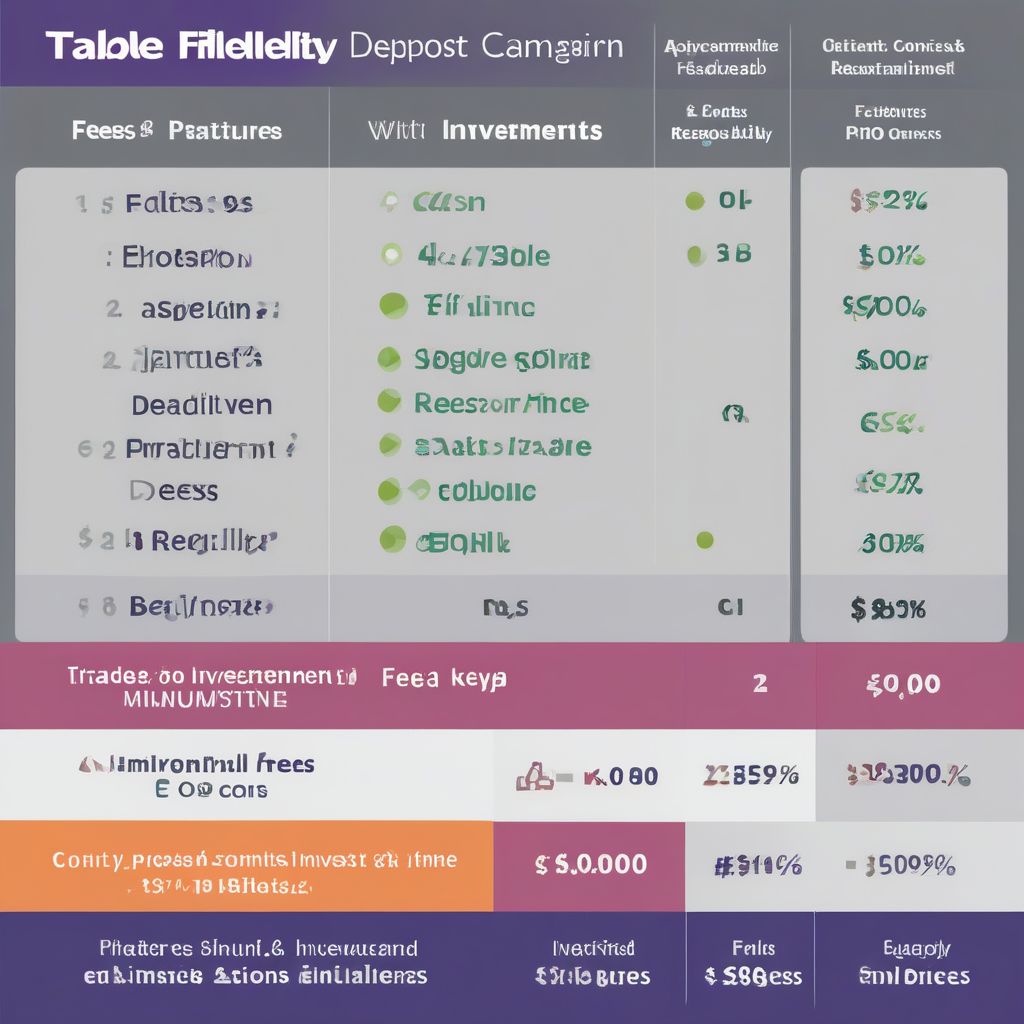In the ever-evolving world of finance, choosing the right brokerage account can be a daunting task, especially with a plethora of options available. Two popular contenders often top the list for both seasoned investors and beginners: Fidelity Investments and Etrade. This comprehensive guide will delve into a detailed comparison of Fidelity Investments Vs Etrade, examining their strengths, weaknesses, and ideal investor profiles to help you make an informed decision.
Understanding the Importance of Choosing the Right Brokerage Account
Before diving into the specifics, it’s crucial to grasp why selecting the right brokerage account matters. Think of it as laying the foundation for your financial future. The right brokerage account will align with your investment goals, risk tolerance, and preferred trading style.
What are Fidelity Investments and Etrade?
Fidelity Investments and Etrade are among the largest and most established online brokerage firms in the United States. They provide access to a wide array of investment products and services, empowering individuals to take control of their financial destinies.
Fidelity Investments Vs Etrade: A Head-to-Head Comparison
To make an informed choice between Fidelity and Etrade, let’s compare them across key factors that are essential for investors:
1. Trading Costs and Fees:
Trading Commissions: Both Fidelity and Etrade have eliminated commissions for online stock, ETF, and options trades. This levels the playing field in terms of basic trading costs.
Options Trading Fees: For options traders, Fidelity charges a per-contract fee, while Etrade offers tiered pricing based on trading volume. Active options traders might find Etrade’s volume discounts more appealing.
Account Minimums: Neither Fidelity nor Etrade requires a minimum initial deposit to open a brokerage account, making them accessible to a wider range of investors.
2. Investment Options:
Diversity of Offerings: Both platforms boast an extensive selection of investment products, including stocks, bonds, mutual funds, ETFs, options, and futures. However, Fidelity stands out with its access to a broader range of mutual funds, including its own renowned Fidelity funds.
Fractional Shares: Fidelity allows investors to purchase fractional shares of stocks and ETFs, making it easier to invest in high-priced securities with a smaller amount of capital. Etrade also offers fractional shares.
3. Trading Platforms and Tools:
User Experience: Both platforms provide intuitive and user-friendly web-based trading platforms suitable for investors of all levels.
Mobile Apps: Fidelity and Etrade offer robust mobile apps with features like real-time quotes, charting tools, and research reports, enabling on-the-go trading and account management.
Advanced Trading Tools: Active traders might prefer Etrade’s Power E*TRADE platform, known for its advanced charting, technical analysis indicators, and customizable options strategies.
Research and Education: Fidelity excels in providing comprehensive research reports, market analysis, and educational resources through its website and mobile app. Etrade also offers research and educational materials, but Fidelity’s offerings are generally regarded as more in-depth.
4. Customer Support:
Accessibility: Both Fidelity and Etrade provide customer support through phone, email, and live chat. Fidelity, however, has an edge with its extensive network of physical branches across the United States, offering in-person assistance for those who prefer it.
Response Time and Quality: Customer satisfaction ratings for both companies are generally positive, but individual experiences may vary.
5. Other Considerations:
Cash Management: Fidelity offers a cash management account that functions like a checking account, allowing users to earn interest on uninvested cash. Etrade also offers a cash management account.
Retirement Planning: Both platforms provide tools and resources for retirement planning, including IRA accounts, Roth IRAs, and rollovers.
International Trading: Etrade offers more extensive international trading capabilities than Fidelity.
Which Brokerage Account is Right for You?
Fidelity Investments emerges as a well-rounded choice for:
- Beginners: Fidelity’s user-friendly platform, educational resources, and extensive research make it an excellent starting point for new investors.
- Long-Term Investors: Fidelity’s wide selection of low-cost mutual funds, including its own highly-regarded Fidelity funds, aligns well with a long-term investment strategy.
- Retirement Savers: Fidelity’s comprehensive retirement planning tools and resources cater to investors focused on securing their financial future.
Etrade stands out for:
- Active Traders: Etrade’s Power E*TRADE platform provides the advanced tools and features that active traders require.
- Options Traders: Etrade’s tiered options pricing structure can be advantageous for high-volume options traders.
- International Investors: Etrade offers more extensive international trading opportunities compared to Fidelity.
investment.mansfieldtxfarmersmarket.com/wp-content/uploads/2024/09/fidelity-vs-etrade-comparison-table-66de6c.jpg" alt="Fidelity vs Etrade comparison table" width="1024" height="1024">Fidelity vs Etrade comparison table
Conclusion
The choice between Fidelity Investments and Etrade ultimately boils down to your individual needs and preferences. Carefully consider your investment goals, risk tolerance, preferred trading style, and desired level of research and support when making your decision.
To explore further and gain a deeper understanding of the financial landscape, continue your research on our website. We provide valuable insights on a wide range of investment topics, empowering you to navigate the world of finance with confidence.
